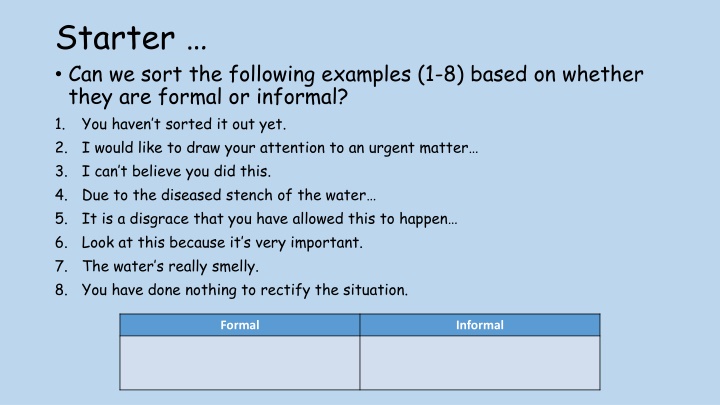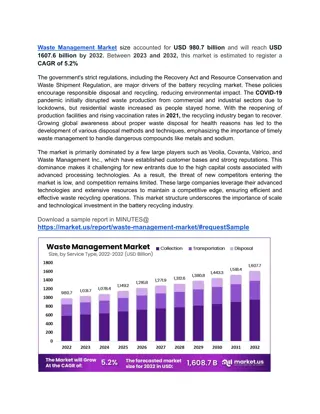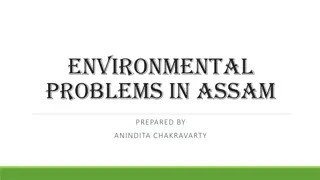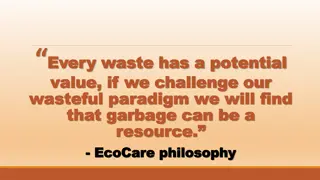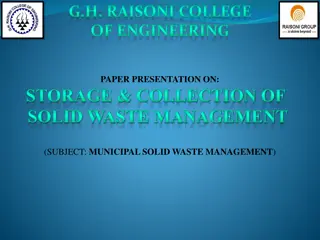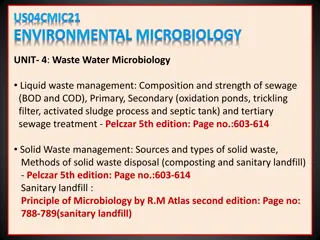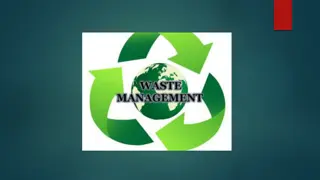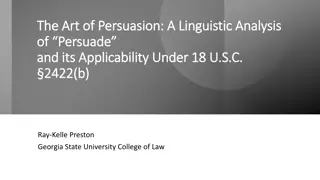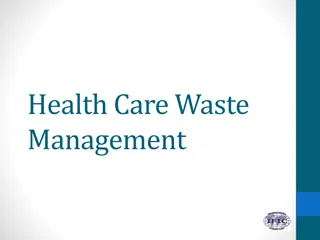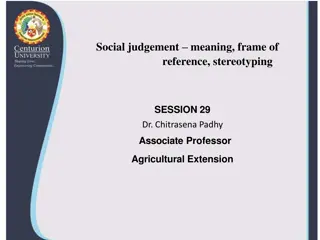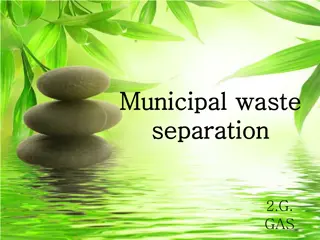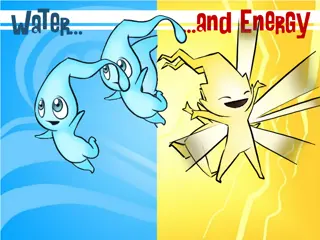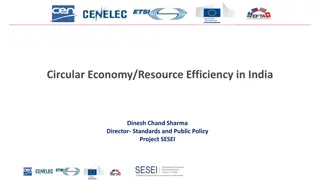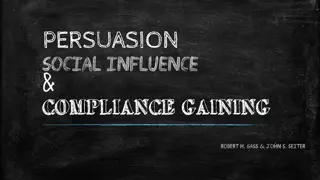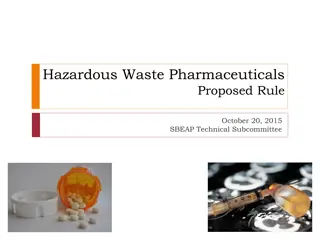Analyzing Language and Persuasion Strategies in Waste Management Education
Explore the use of emotive language in persuading actions for waste management. Learn to identify formal and informal language examples and create persuasive sentences. Also, spot and correct spelling errors while discussing impactful slogans. Engage in activities to enhance understanding and communication skills in waste management topics.
Download Presentation

Please find below an Image/Link to download the presentation.
The content on the website is provided AS IS for your information and personal use only. It may not be sold, licensed, or shared on other websites without obtaining consent from the author.If you encounter any issues during the download, it is possible that the publisher has removed the file from their server.
You are allowed to download the files provided on this website for personal or commercial use, subject to the condition that they are used lawfully. All files are the property of their respective owners.
The content on the website is provided AS IS for your information and personal use only. It may not be sold, licensed, or shared on other websites without obtaining consent from the author.
E N D
Presentation Transcript
Starter Can we sort the following examples (1-8) based on whether they are formal or informal? 1. You haven t sorted it out yet. 2. I would like to draw your attention to an urgent matter 3. I can t believe you did this. 4. Due to the diseased stench of the water 5. It is a disgrace that you have allowed this to happen 6. Look at this because it s very important. 7. The water s really smelly. 8. You have done nothing to rectify the situation. Formal Informal
LO: Analyse the use of emotive language to persuade. We are going to look at some examples of sentences with emotive language about waste. With each one, we are going to highlight the words/phrases in each one that make it emotive? For example, what makes this sentence emotional? Think of the poor, defenceless animals that are suffering because of our waste.
LO: Analyse the use of emotive language to persuade. Now, we are going to try to use some emotive language to describe some images of waste. Using your word bank, we will look at how closely the language links to the image. Most emotional Word bank: choke hurt suffocate threaten starve worry Least emotional
Starter Can you write two sentences about waste using one of these persuasive sentence starters? School Radio - Assemblies KS2 - Recycle Week
LO: Create sentences using emotive language. We are going to use some of the examples of emotive language that we explored yesterday to write sentences about images of waste. Can you create one on your whiteboard (looking back at yesterday s work) for the following picture? Our emotive language word bank
Starter Can you spot and EDIT the spelling mistakes in each of the following sentences? 1) Although many people think that plastic can be a usefull material, we do everything in our power to reuse it. 2) Throughout the pandemic, face masks have found their way to oceans wich are harming animals. 3) Countrys must work together to reduce the amount of waste that goes to landfill.
What do you notice about the following slogans? Do you recognise any? What impact do you have when you see/hear/ read them?
LO: Analyse the power of 3 to persuade. Here is a persuasive advert for a hotel Can you find and highlight the example of a RULE OF 3?
Your task LO: Analyse the power of 3 to persuade. Look at the examples of extracts from persuasive texts, can you find and highlight examples of the power of three that the author has used to help to persuade the reader? Then, can you have a go at writing your own sentences about waste using the power of three?
Starter Can you write up to 3x sentences about waste using some of the modal verbs below?
LO: Analyse the use of rhetorical questions to persuade. Look at the examples of extracts from persuasive texts, can you find and highlight examples of rhetorical questions that the writer uses to engage the reader? Environmentalists argue that this farming of oil palm trees is extremely bad for the planet. Palm oil production is said to have been responsible for about 8% of the world's deforestation between 1990 and 2008.This is because forests are burned to clear areas where people can grow oil palms (even if it's illegal). These rainforests provide 20% of the oxygen we breathe, they are home to many thousands of animals and many tribes of people have lived there for hundreds of years. Is it worth harming our planet?
LO: Analyse the use of rhetorical questions to persuade. Rhetorical questions that we could use about waste
Starter Some of the following sentences need an apostrophe to show possession and some do not. Can you sort the numbers into a table? 1) The horses head 2) The groups of children 3) Sams hat 4) Rows of chairs 5) Plastics can have an impact on the environment -s ending - s ending
Power of three e.g. You can ride donkeys, eat ice- cream and build sandcastles. Cohesive devices Words/phrases to help my writing flow Emotive language e.g. Exhausted children are forced to complete impossible homework. Directly speaking to the reader e.g. As a community, we need to clean up our parks. Writing to persuade COLLECT IT! Rhetorical questions e.g. Is it fair to allow their habitat to be destroyed? Repetition e.g. We must change. We must make a difference. We must act now. Modal verbs e.g. People should stop using products with palm oil. Exaggeration & hyperbole e.g. The walk was a million miles long.
Websites to visit: https://www.ovoenergy.co m/blog/green/10-shocking- facts-about-waste.html LO: Research facts on waste. Interesting facts on waste https://www.softschools.co m/facts/environmental_scie nce/landfill_facts/2688/ https://www.cbenvironmen tal.co.uk/docs/Recycling%20 Activity%20Pack%20v2%20. pdf VIDEO: https://www.bbc.co.uk/teac h/school-radio/assemblies- ks1-ks2-where-does-all-our- rubbish-go-understanding- waste/z8hrydm
